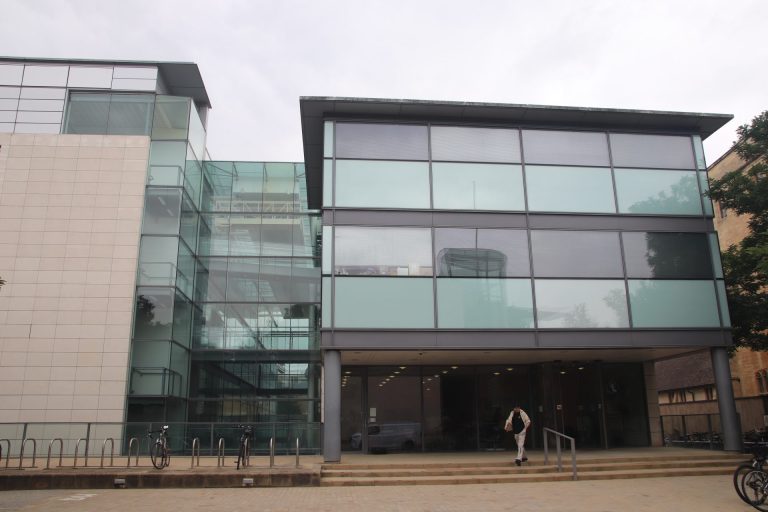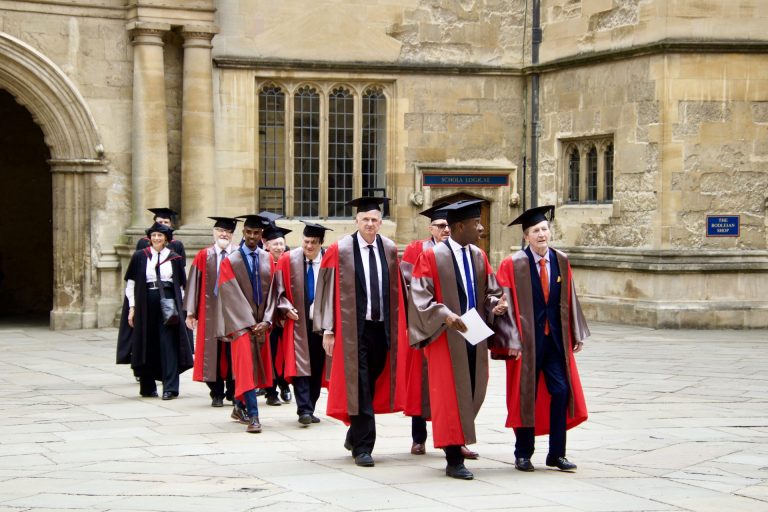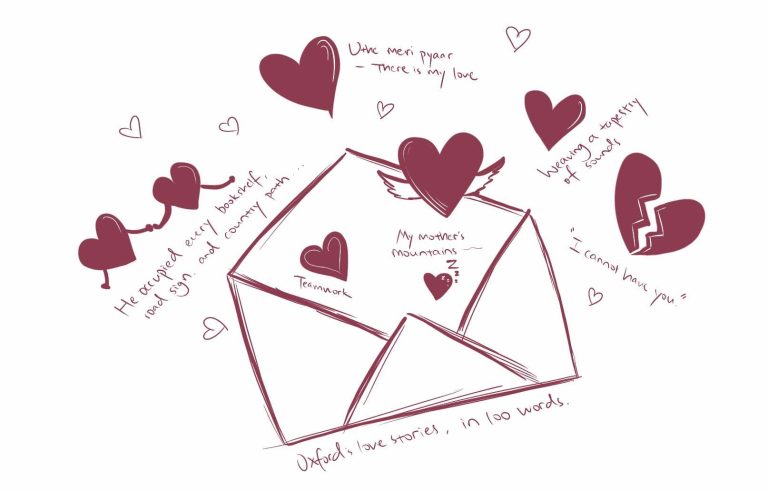“When people listen to your upcoming album Dog Eared, where should they imagine you writing the songs?”
Musician Billie Marten, on the other end of the Zoom call, looks around the room in which she is sitting. “The Glass was written right here…Most of them were written here actually, yellow makes me want to create. So they should imagine me in a yellow room.”
In her house in Hackney, London, Billie was sitting in a yellow room. The contrast of her blonde hair with the yellow wall made her look like she was glowing. Born in Ripon in North Yorkshire, she first started singing and picked up the guitar when she was eight, but her career started when she was twelve and she got recorded for a local YouTube channel. Billie went and got recorded and when she was done, the two guys helping to record looked at each other and said “Well, what do we do this now?” They asked to manage her, but they were not really managers so soon afterwards, Billie says, “people from London caught me” and since then everything has flourished. Now twenty-five, with over 500 million downloads, four albums, and an upcoming fifth (Dog Eared to be released on July 18th 2025 via Fiction Records). It’s hard to not be in awe of Billie.
People like Billie, who achieve such fame at a young age–a similar age to that of most Cherwell readers–always feel like distant idols. Billie is an idol of mine because of her ‘grown-into-herself-ness’ which she portrays and if you listen to her music it immediately comes through. One of my favorite songs ‘This is How we Move’ off of her 2023 album Drop Cherries has this refrain full of tenderness:
“I got what I was asking for
And I dug myself right up
The earth was pouring on my brow
And I knew I was enough”
This kind of lyricism, steeped in life and softness, defines Billie’s sound not only as a musician but as a person.
“When was the first time you took yourself seriously as an artist?” I asked.
Billie smiled softly, “Oh, ah, that’s still a work in progress. Identity is such a tricky subject, and I’m working on not taking myself as seriously as I have in the past. But with that comes more vulnerability. And, you know, self deprecation and things that aren’t necessarily helpful or attractive for an artist. I think everybody needs to take themselves a little bit seriously, otherwise, you know, who’s going to believe in them? You have to believe in yourself. But pretty much my whole career I have written about this specific issue.”
Drop Cherries she describes as “always the album I wanted to make from the beginning. I [just needed] enough experience and heart in order to make it.” Now with Dog Eared, it is in many ways an ode to this kind of aging process and developing heart, a sense of self, and how exhausting that is. The title itself is in reference to the dogearing of books, but also “to age and experience and how I feel sometimes, like I am so tired, and yet, I am 25 years old, you know, that’s bonkers. When something is dog-eared, it’s thumbed through, and it’s worn, you know, it’s lived a life. Sometimes I feel that way.”
This is a feeling that is resonant for the way the pace of life often moves. I feel a kind of relief when she says that she, too, feels tired. It makes me feel less isolated in the process of what it means to grow up. However, there is some disconnect between Billie’s ‘worn-ness’ and my own. Billie is thirteen years into her music career; I am approaching the final year of university which feels like this uprooting of all the things I find comforting. Part of the awe of someone whose career started when they were younger is that they seem to be on this fast track through all the unknowns of growing up.
“Do you ever feel like you either had to, or maybe, got to skip the phase where you figure out like what you’re doing with your life, like that kind of, you know, 21 year old life crisis. Or do you feel like you had that in a totally different way?”
“Definitely had some crises,” Billie says, “but there’s lots of things that I will have to return to later in life, like I didn’t study. I would love to do that, and I really wanted to, but I couldn’t, because I had a job.”
Taking a brief pause she looks down at her lap, then back into the camera of her computer.
“Live in a different country. I mean, there’s nothing stopping me doing that, except I love London. But I imagine there’d be a sort of, maybe late 30s, early 40s, teenage regression to just to just go back to being unsure.”
Billie feels no shame in saying that she may not do music for her whole life; “It’s my passion, and it is an important thing to me within my very soul. But I don’t know if I need to make it”
“What is on the list of things for your teenage regression?”
A smile spreads across Billie’s face. “Be in some community that we have all signed up for at the same time, because I never did that. I was lonely at that time because I wasn’t going to uni and I wasn’t around people my own age to figure things out with. I wonder if there’s an undergraduate degree for 38 to 45 year olds. Also, I need to have some reckless love affairs. Definitely, definitely necessary. Gonna need to get my heart broken.”
“How many times would you say it has been broken so far?”
“Zero.”
“Zero?!”
“I’ve had people that have that have left, but my heart wasn’t theirs, so it has never broken in the clinical sense”
I told my friend who is also a devoted fan that Billie said she never had her heart broken and astounded, my friend said: “But I’ve used all her music through all my breakups! There is no way she hasn’t gotten her heart broken.” True, the melancholic tenderness of Billie’s music makes it feel like a shelter for aching hearts; and yet, she is writing not from her own broken heart, but from the same emotional genre, which makes her words real and rooted in her own worn-ness of growing.
“I think a lot of fans have felt a lot of pain from themselves,” she says. “I’ve listened to people talk about that quite a lot, or how they find the music in a dark spot. There’s quite a lot of darkness that people hold when they come to see a show and my job is to make sure that they are held and seen, and to make sure that they know [the song] came from me, so this feeling, I have been there.” Pausing a moment, Billie settles on that thought. “I wonder how they’re going to react to Dog Eared, since maybe that’d be less, but it’s important. It’s important to share both sides. You know, I’ve got to show them light.”
Dog Eared, while it’s an ode to aging and developing heart, is imaginative. Most of the songs, even though written in her home, are not about her home, or even places she fully knows. “Which is just so freeing for me, because I don’t have to sing again and again about something quite dramatic or me being mean to myself.” In this way, Dog Eared is the ultimate ode to the worn-ness of aging because she embodies her aging as the potential to see things she could not have previously imagined.
Billie held up a white CD disk to the camera with the words ‘As Long As’ written on the front in sharpie. This was one of her first EP’s. “I listened to this the other day, and I thought I sounded like a little blueberry.” She laughs lightly. “I thought I was so grown, but that’s just the thing about growing, it’s like trying on a pair of your dad’s jeans. One day you get into your dad’s jeans as a child [and they are huge], and one day they fit perfectly. When you’re a child, your dad’s jeans you imagine are the biggest, but there will always be a bigger pair of jeans somewhere.”
Continually seeking out a bigger pair of jeans, where Billie goes next, whether it’s teenage regression, or heart break, it seems will push her forth on the quest of taking herself seriously as an artist, and being a growing human. Perhaps a better way of phrasing that is Billie, while she feels worn, and thumbed through, sees this feeling as a way of getting to know herself deeper and to move with that feeling is a way to reckon with all who she is to become. Taking these ‘seeds of knowledge’ from Billie, perhaps the unknown can be a beautiful thing.
Towards the end of our interview, Billie’s cat Pip walked across her lap. Featured in the song ‘Crown’ off of Dog Eared, Billie stroked Pip and smiled. “Right out in my yard, that’s when I wrote those lyrics.”
“The cat sits in the shade
And I am not afraid of love
The cat sits in the shade
And I am not afraid”
Whatever comes next, however Billie continues to grow, there is no fear. No fear, –I have learned– is not to be confused with knowing exactly what comes next, but rather coming to embrace the search for a bigger pair of jeans.
Dog Eared will be released on July 18th.











